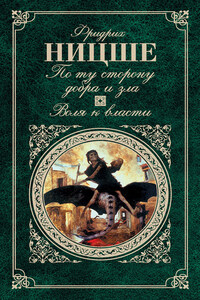Paris had never seemed to the eye more peaceful than on a certain November evening in the year 1589: and this although many a one within its walls resented the fineness of that night as a mockery, a scoff at the pain of some and the fury of others.
The moonlight fell on roofs and towers, on the bare open space of the Place de Grève and the dark mass of the Louvre, and only here and there pierced, by chance, a narrow lane, to gleam on some foul secret of the kennel. The Seine lay a silvery loop about the He de la Cité-a loop cut on this side and that by the black shadows of the Pont au Change, and the Petit Pont, and broken again westward by the outline of the New Bridge, which was then in building.
The city itself lay in profound quiet in the depth of the shadow. From time to time at one of the gales, or in the lodge of the Châtelet, a sentinel challenged or an officer spoke. But the bell of St. Germain l'Auxerrois, which had rung through hours of the past day was silent. The tumult which had leaped like flame from street to street had subsided. Peaceful men breathed again in their houses, and women, if they still cowered by the hearth, no longer laid trembling fingers on their ears. For a time the red fury was over: and in the narrow channels, where at noon the mob had seethed, scarcely a stray wayfarer could now be found.
A few however were abroad: and of these some who chanced to be threading the network of streets between the Châtelet and the Louvre, heard behind them the footsteps of a man in great haste, and saw pass them a youth, white-faced and wearing a sword and a student's short cloak and cap-apparently a member of the University. He for his part looked neither to right nor left: saw not one of them, and seemed bent only on getting forward.
He slackened his space however near the corner of the Rue de l'Arbre Sec, where it shoots out of the Rue de Béthisy, and then turning it with a rush, caught his foot in some obstacle, and plunging forward, would have fallen violently, if he had not come against a man, who seemed to be standing still in the shadow of the corner house.
"Hold up!" exclaimed this person, withstanding the shock better than could have been expected. "You should have a pretty mistress, young man, if you go to her at this pace!"
The student did not answer-did not seem to hear. He had staggered against the wall, and still stood propping himself up by it. His face, pale before, was ghastly now, as he glared, apparently horror-struck, at something beyond the speaker. The latter, after muttering angrily, "What the plague do you go dashing about the streets like a Shrove Tuesday ox for?" turned also and glanced behind him.
But not at that to which the student's eyes were directed. The stranger seemed constrained to look first and by preference at the long, low casement of a house nearly opposite them. This window was on the first floor, and projected somewhat over the roadway. There seemed to be no light in the room; but the moonlight reached it, and showed a woman's head bent on the sill-a girl's head, if one might judge from its wealth of hair. One white wrist gleamed amid this, but her face was hidden on her arms. In the whole scene-in the casement open at this inclement time, in the girl's attitude of abandonment, there was something which stirred the nerves. It was only after a long look that the stranger averted his eyes, and cast a casual glance at a queer, dark object, which a few paces away swung above the street, dimly outlined against the sky. It was that which had fascinated his companion.
"Umph!" he ejaculated in the tone of a man who should say "Is that all?" And he turned to the other again. "You seem taken aback, young man!" he said. "Surely that is no such strange sight in Paris nowadays. What with Leaguers hanging Politiques, and Politiques hanging Leaguers, and both burning Huguenots, I thought a dead man was no longer a bogey to frighten children with!"
"Hush, sir, in Heaven's name!" exclaimed the young man, shuddering at his words. "He was my father!"
The stranger whistled. "He was your father, was he!" he replied more gently. "I dare swear too that he was an honest man, since the Sixteen have done this. There, steady, friend. These are no times for weeping. Be thankful that Le Clerc and his crew have spared your home, and your-your sister. That is rare clemency in these days, and Heaven only knows how long it may last. You wear a sword? Then shed no tears to rust it. Time enough to weep, man, when there is blood to be washed from the blade."
"You speak boldly," said the youth, checking his emotion somewhat, "but had they hung your father before his own door-"
"Good man," said the stranger with a coolness that bordered on the cynical, "he has been dead these twenty years."
"Then your mother?" suggested the student with the feeble persistence by which weak minds show their consciousness of contact with stronger ones, "you had then-"
"Hung them all as high as Haman!"
"Ay, but suppose there were among them," objected the youth, in a lower tone, while he eyed his companion narrowly, "some of the clergy, you understand?"














